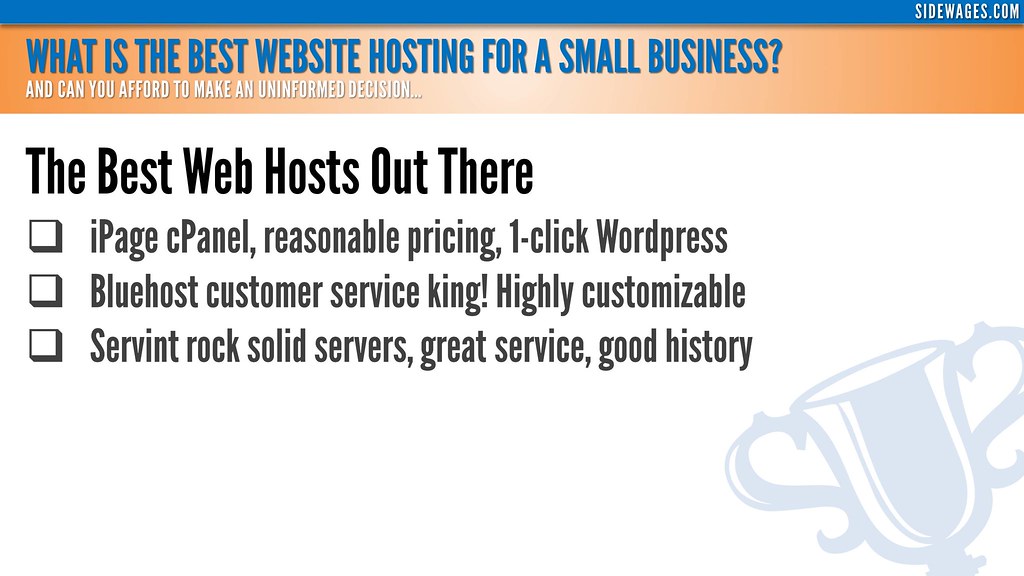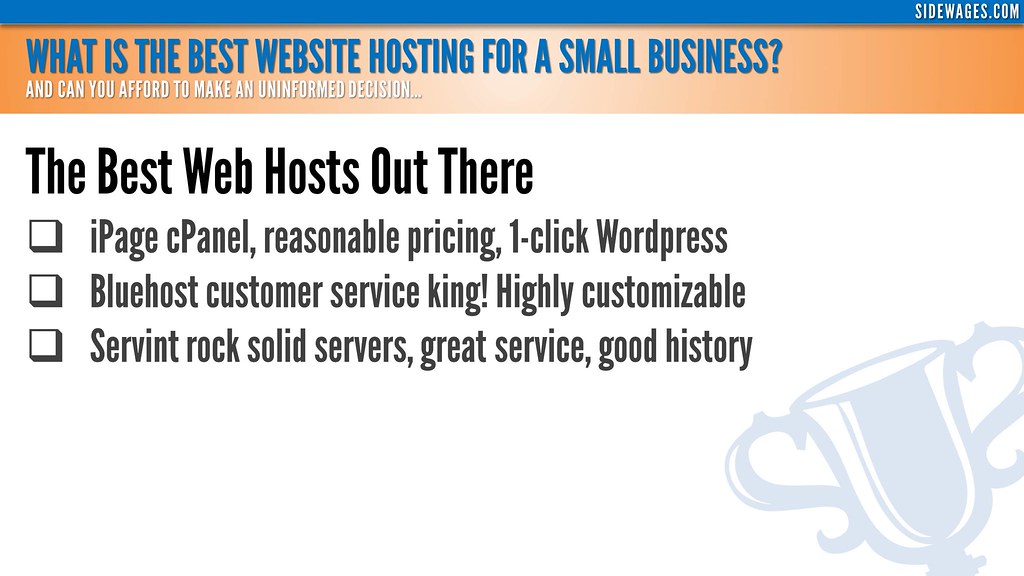When it comes to web hosting, the cost can vary significantly depending on a range of factors. From the type of hosting services you need to the level of features and resources, there are various elements that determine the price you’ll pay. It’s important to understand these factors and find a hosting provider that offers the right balance between cost and quality, ensuring a reliable and efficient website.
Web hosting costs are influenced by factors such as the type of hosting plan you choose, the level of bandwidth and storage you require, and any additional features or services included. It’s also worth noting that pricing can differ across different hosting providers, so it’s wise to compare options and evaluate the value they offer. By considering your specific needs and conducting thorough research, you can find a web hosting solution that suits both your budget and your website requirements.
When it comes to web hosting, prices can vary depending on the provider and the package you choose. Entry-level shared hosting plans can start at around $2 to $10 per month, while more advanced options like VPS or dedicated servers can range from $20 to $100 or more per month. Additionally, some providers offer promotional deals or discounts that can lower the cost. Remember to consider factors like storage, bandwidth, and support when comparing prices.

Factors Affecting Web Hosting Costs
When it comes to launching a website, one of the first steps is to find a reliable and affordable web hosting provider. Web hosting is the service that allows your website to be accessible to users on the internet. However, the cost of web hosting can vary significantly depending on various factors. Understanding these factors can help you make an informed decision and choose a hosting plan that meets your needs and budget.
1. Type of Hosting: There are different types of hosting available, including shared hosting, VPS hosting, dedicated hosting, and cloud hosting. Shared hosting is the most affordable option as multiple websites are hosted on the same server, sharing its resources. VPS hosting offers more resources and control at a higher cost, while dedicated hosting provides a dedicated server for your website. Cloud hosting is scalable and flexible, with costs based on usage.
2. Storage and Bandwidth: The amount of storage and bandwidth required for your website impacts the cost of hosting. If you have a small website with minimal traffic, a hosting plan with limited storage and bandwidth may be sufficient and more cost-effective. However, if you have a large website with high traffic, you may need a hosting plan with unlimited storage and bandwidth, which usually comes at a higher price.
3. Server Location: The location of the data center where your web hosting provider stores your website’s files can also influence the cost. Hosting providers have data centers in different countries and regions, and the distance between the server and your target audience can affect website speed and performance. If your target audience is mainly in a specific location, choosing a hosting provider with a data center in that area can improve user experience but may come at a higher cost.
4. Additional Features: Web hosting providers often offer additional features, such as SSL certificates, website builders, backups, and security tools. These features can enhance your website’s functionality and security but may come at an additional cost. Consider the specific needs of your website and see if these features are included in the hosting plan or if you need to pay extra for them.
Shared Hosting
Shared hosting is the most affordable option for hosting your website. In a shared hosting environment, multiple websites share the resources of a single server. This means that the cost of the server is divided among several users, making it a cost-effective choice for small businesses, bloggers, and individuals.
The price of shared hosting can range from a few dollars to around $20 per month, depending on the hosting provider and the specific features included in the plan. Most shared hosting plans offer unlimited storage and bandwidth, making it suitable for websites with moderate traffic.
Shared hosting is suitable for websites that don’t require a high level of customization or extensive resources. It is a good option for small websites, personal blogs, and startups with limited budgets. However, it may not be the best choice for high-traffic websites or those that require advanced features and control.
While shared hosting is an affordable option, it does have its limitations. Since resources are shared among multiple websites, the performance of your website may be affected if other sites on the same server experience high traffic or resource usage. Additionally, you have limited control over the server settings and configurations, as these are managed by the hosting provider.
Pros of Shared Hosting
- Affordable pricing
- Easy to use and set up
- Minimal technical maintenance
- Suitable for small websites and blogs
Cons of Shared Hosting
- Limited resources and scalability
- Performance may be affected by other websites on the same server
- Less control over server settings
VPS Hosting
VPS hosting stands for Virtual Private Server hosting. It offers more resources and control compared to shared hosting but comes at a higher cost. In a VPS hosting environment, a physical server is divided into multiple virtual servers, each with its own dedicated resources.
The cost of VPS hosting can range from $20 to $100 or more per month, depending on the hosting provider, the amount of resources allocated, and the level of management provided. Unlike shared hosting, VPS hosting allows you to have more control over server settings and configurations.
VPS hosting is suitable for websites that require more resources, flexibility, and customization. It is a good option for growing businesses, e-commerce websites, and websites with moderate to high traffic. With VPS hosting, you can scale resources as your website grows and handle increased traffic without affecting performance.
While VPS hosting offers more control and resources, it does require more technical knowledge to set up and manage compared to shared hosting. You are responsible for managing the virtual server, installing software, and ensuring the security and performance of your website.
Pros of VPS Hosting
- More resources and control
- Scalability and flexibility
- Customizable server settings
- Suitable for growing websites
Cons of VPS Hosting
- Higher cost compared to shared hosting
- Requires technical knowledge for setup and management
Dedicated Hosting
Dedicated hosting provides the highest level of resources and control as you have an entire physical server dedicated to your website. This means that all server resources are exclusively used by your website, resulting in optimal performance and security.
The cost of dedicated hosting can range from $100 to several hundred dollars per month, depending on the specifications of the server and the level of management provided by the hosting provider. Dedicated hosting is suitable for large businesses, high-traffic websites, and websites with specific requirements.
With dedicated hosting, you have full control over server settings, software installations, and security configurations. This level of control allows you to optimize the server for your website’s specific needs and ensures that you have complete privacy and independence.
However, dedicated hosting requires advanced technical knowledge to set up and manage. You are responsible for server maintenance, security, and software updates. If you prefer a managed hosting solution, where the hosting provider handles these tasks for you, the cost will be higher.
Pros of Dedicated Hosting
- Maximum resources and control
- High performance and security
- Customizable server configurations
- Suitable for large websites and businesses
Cons of Dedicated Hosting
- Higher cost compared to shared and VPS hosting
- Requires advanced technical knowledge for setup and management
Conclusion
When considering the cost of web hosting, it’s important to evaluate your specific needs and budget. Shared hosting is a cost-effective option for small websites and individuals, while VPS hosting offers more resources and control at a higher cost. Dedicated hosting provides maximum performance and control but comes with a higher price tag. Consider the factors that affect web hosting costs, such as the type of hosting, storage and bandwidth requirements, server location, and additional features.
Choosing the right web hosting plan requires balancing your website’s needs with your budget. It’s recommended to compare hosting providers, read reviews, and consider the level of customer support and uptime guarantees offered. By making an informed decision, you can find a web hosting plan that meets your requirements and provides a reliable and affordable solution for your website.
| Type of Hosting | Starting Price per Month |
| Shared Hosting | $3 – $10 |
| VPS Hosting | $20 – $100 |
| Dedicated Hosting | $100 – $500+ |
Key Takeaways: How Much Does Web Hosting Cost?
- Web hosting costs can vary depending on the provider and the type of hosting package.
- Shared hosting is the most affordable option, with prices typically ranging from $2 to $10 per month.
- VPS hosting offers more resources and costs around $20 to $60 per month.
- Dedicated hosting is the most expensive option, with prices starting at $80 per month and going up to several hundred dollars.
- Factors like storage, bandwidth, and customer support also influence the cost of web hosting.
Web hosting costs vary depending on the type of hosting and the features included. Shared hosting is the most affordable option, typically priced between $2 to $15 per month. VPS hosting offers more resources and costs around $20 to $100 per month. Dedicated hosting provides complete server control and can range from $80 to over $1000 per month.
Other factors that affect hosting costs include storage space, bandwidth, additional services like SSL certificates, and the reputation and reliability of the hosting provider. It’s important to compare different web hosting plans and choose one that meets your specific needs and budget.

